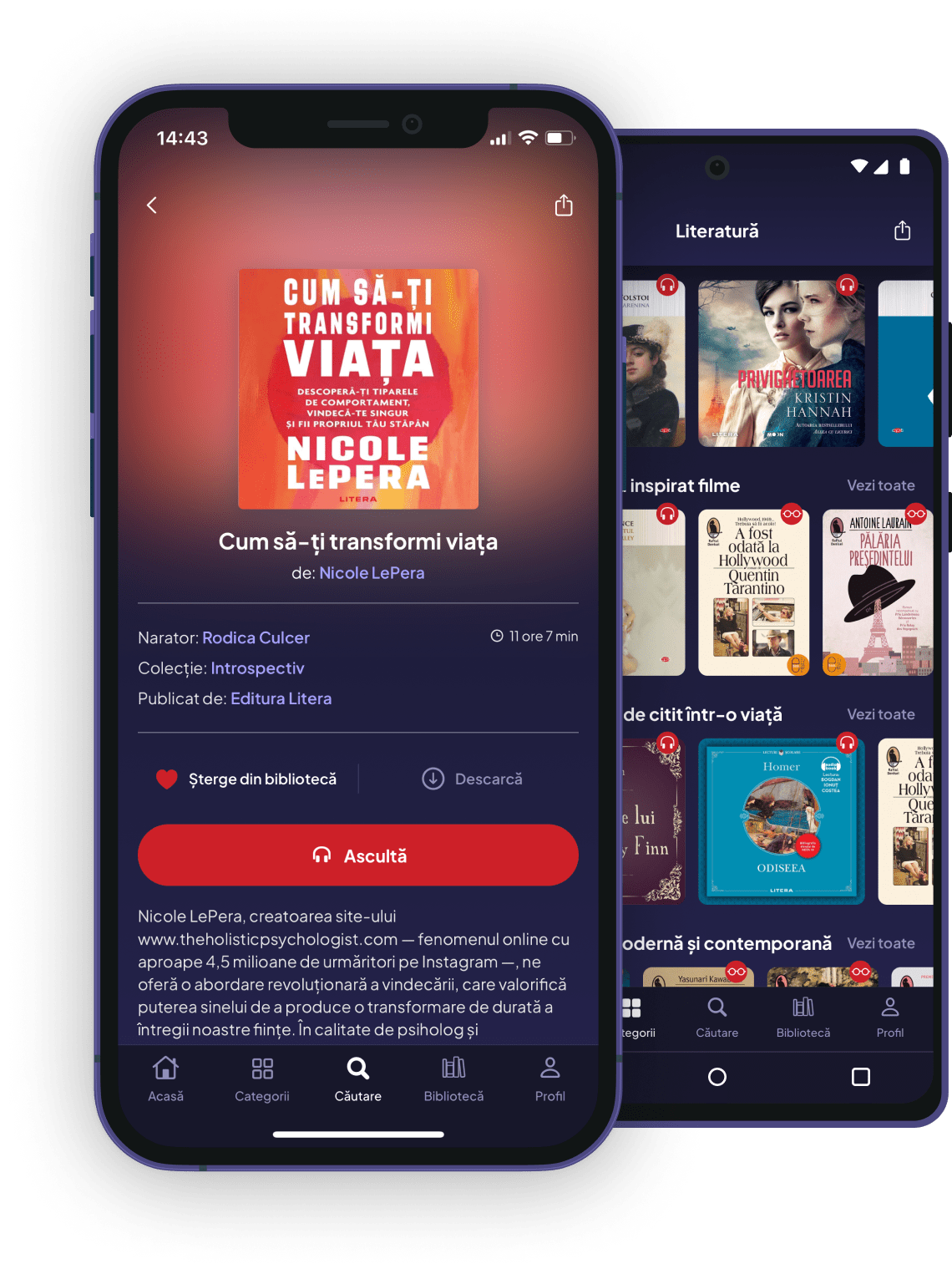Cum funcționează?
1
Iți creezi cont.
Creează-ți un cont gratuit chiar aici.
2
Descarci aplicația Voxa
Disponibilă pentru Android și iPhone de pe Google Play sau App Store.
3
Încerci gratuit 7 zile
Ai acces la 70.000 titluri și întreaga experiență Voxa.
4
Asculți fără internet
Descarcă audiobook-urile preferate și bucură-te de ele chiar și când nu ai conexiune la internet.

